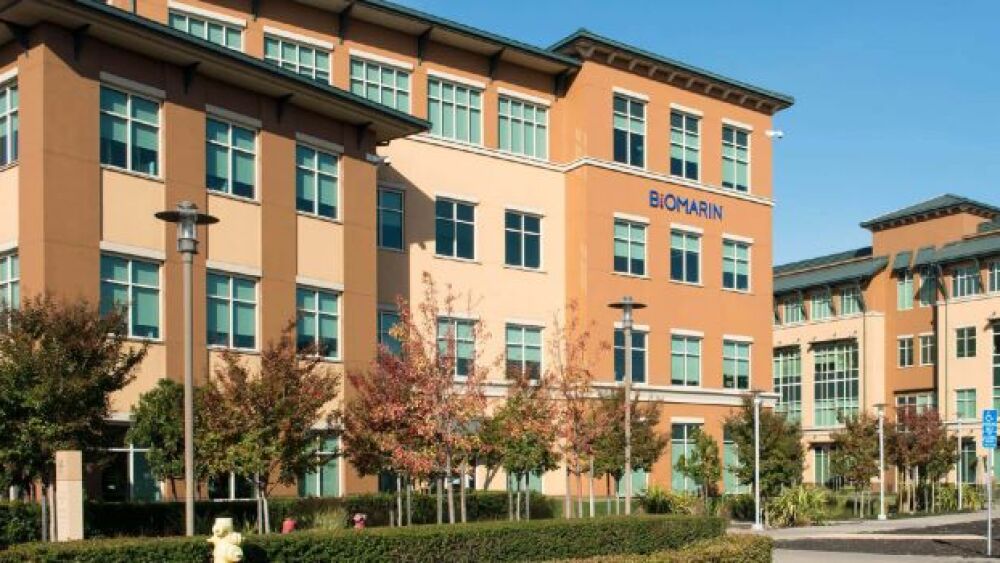During its third-quarter earnings report, BioMarin noted that the FDA planned to hold an advisory committee meeting to discuss the company’s gene therapy for hemophilia A.
BioMarin HQ/courtesy of BioMarin
During its third-quarter earnings report, BioMarin Pharmaceutical noted that the FDA plans to hold an advisory committee meeting to discuss the company’s gene therapy for hemophilia A.
The Biologics License Application (BLA) for Roctavian (valoctocogene roxparvovec) was resubmitted on Oct. 12 and has a target action date of Mar. 31, 2023.
In the original announcement regarding the acceptance of the resubmission, the company said the FDA had not indicated there would be an advisory committee meeting.
Jeffrey Ajer, BioMarin’s EVP and CMO, said in a conference call Thursday that the company is preparing for a potential launch based on the Mar. 31 PDUFA date.
“The cost of the therapy for the treatment of severe hemophilia A in the United States is high and well understood by payers,” Ajer said.
Ajer noted that the Institute for Clinical and Economic Review (ICER), a drug-pricing watchdog in the U.S., had issued a report on Sept. 13 that suggested the possible U.S. price was appropriate.
“At a presumed price of $2.5 million, the report referred to Roctavian as a dominant treatment relative to emicizumab on cost-effectiveness. Roctavian was projected to have lower costs of $4 million, slightly higher quality-adjusted life years and slightly lower bleeds,” Ajer said.
Henry Fuchs, BioMarin’s president of worldwide research and development, appeared to welcome the advisory committee meeting, which has not been scheduled yet.
“This is something that we’ve been preparing for over the last few months,” Fuchs said in the call. “We believe the [meeting] will provide a good forum to review the demonstrated bleeding control and established safety profile of Roctavian.”
The AAV gene therapy Roctavian was approved in Europe on Aug. 24. In the U.S., the therapy received a Complete Response Letter on Aug. 18, 2020.
The resubmission included two-year outcomes from all participants in the GENEr8-1 Phase III trial, which demonstrated stable and durable bleed control and a decrease in the mean annualized bleeding rate (ABR) and the mean annualized Factor VIII infusion rate.
The BLA resubmission also included data from five years of follow-up from the 6e13 vg/kg dose cohort in an ongoing Phase I/II dose escalation trial and a proposed long-term extension study that would follow participants for up to 15 years.
The company initially submitted a BLA in late 2019. The trials it was based on had positive results, but the FDA rejected the application, asking for at least two more years of follow-up data from each patient in the study.
Otherwise, BioMarin reported third-quarter revenues of $505.3 million, an increase of 24% compared to the same period the year before. The growth was driven by higher sales of Voxzogo, Naglazyme and Vimizim. Voxzogo is indicated for children with achondroplasia; Naglazyme is for mucopolysaccharidosis VI (MPS VI) and Maroteaux-Lamy syndrome; Vimizim is approved for Morquio A (MPS IVA).





